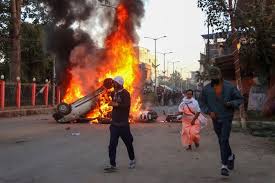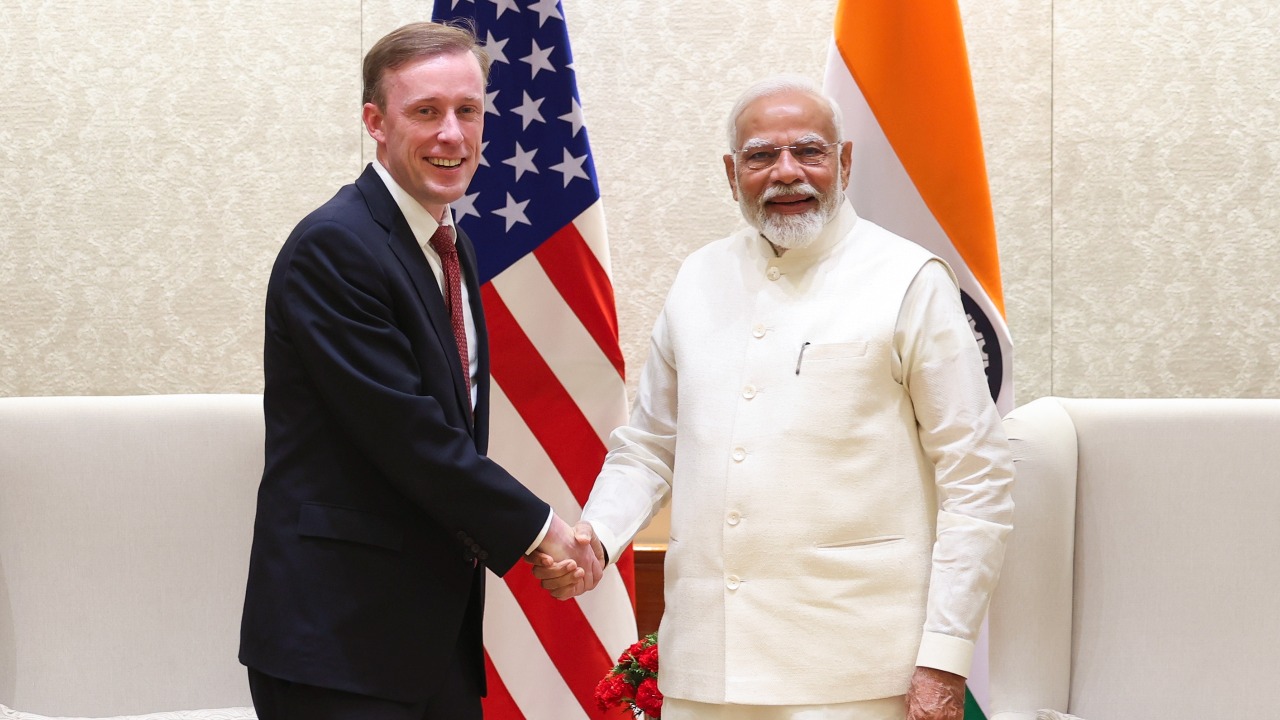Manipur Violence: A Call for Peace and Unity in 2025

The ongoing violence in Manipur, which erupted in May 2023 due to deep-seated ethnic tensions between the Meitei community and the Kuki-Zo tribes, has left a profound impact on the state and its people. This conflict has not only resulted in tragic loss of life but has also caused widespread displacement and devastation, fundamentally altering the lives of thousands. As of the end of 2024, the death toll has surpassed 250, with countless individuals rendered homeless, forced to flee their homes and seek refuge in camps or other makeshift arrangements. The violence, which began as a result of longstanding grievances and mistrust between the two communities, quickly escalated, plunging the region into turmoil and creating an atmosphere of fear and uncertainty.
Chief Minister N. Biren Singh recently addressed the people of Manipur, expressing his deep regret for the ongoing crisis and extending a heartfelt apology for the suffering endured by the state's residents. In his statement, Singh acknowledged the immense challenges faced by the affected communities and emphasized the importance of unity and reconciliation as the cornerstone of rebuilding trust and harmony in Manipur. He expressed hope for a peaceful 2025, envisioning a future where the diverse communities of Manipur could come together to heal the wounds of the past and work towards a shared vision of prosperity and coexistence. Singh’s remarks highlighted the critical need for dialogue, understanding, and collective effort to overcome the divisions that have fueled the violence and animosity.
In recent months, the state government has reported a noticeable reduction in the intensity of violence, with fewer incidents being recorded compared to the initial stages of the conflict. This decline in violence has provided a glimmer of hope for many, signaling a potential turning point in the path toward peace and stability. However, the scars left by the conflict remain deep, and the road to reconciliation and recovery is fraught with challenges. The displacement of thousands has created a humanitarian crisis, with many struggling to access basic necessities such as food, shelter, and medical care. The prolonged nature of the conflict has also taken a toll on the mental health and well-being of the affected populations, particularly children and vulnerable groups, who have borne the brunt of the upheaval.
The Meitei and Kuki-Zo communities, which have historically coexisted in the region, have found themselves at odds over a range of issues, including land rights, political representation, and cultural differences. These longstanding grievances have been exacerbated by economic disparities and a lack of effective mechanisms for conflict resolution, leading to an environment where tensions could easily ignite into violence. The current crisis has underscored the urgent need for comprehensive measures to address the root causes of the conflict and to foster a sense of belonging and inclusion among all communities in Manipur. Efforts to promote inter-community dialogue, rebuild trust, and ensure equitable development will be critical in preventing the recurrence of such violence in the future.
Chief Minister Singh’s appeal for unity reflects a broader recognition of the need for collective action and shared responsibility in addressing the challenges facing Manipur. His call for healing and moving forward together as a community resonates with the aspirations of many who yearn for an end to the cycle of violence and a return to normalcy. The state government, in collaboration with civil society organizations and community leaders, has been working to implement initiatives aimed at fostering peace and reconciliation. These efforts include outreach programs, conflict resolution workshops, and initiatives to rebuild infrastructure and provide support to those affected by the violence. While these measures represent important steps in the right direction, much more needs to be done to ensure a sustainable and lasting peace in the region.
The international community has also taken note of the situation in Manipur, with various human rights organizations and advocacy groups calling for greater attention to the plight of the affected communities. These groups have emphasized the importance of upholding human rights and ensuring accountability for acts of violence and injustice. They have also urged the government to prioritize the needs of the displaced populations and to provide adequate resources for their rehabilitation and reintegration. The involvement of external stakeholders, while valuable in raising awareness and mobilizing support, must be complemented by local efforts that are rooted in the unique cultural and social context of Manipur.
As Manipur looks ahead to 2025, the challenges remain significant, but so do the opportunities for change and renewal. The experiences of the past two years have highlighted the resilience and strength of the people of Manipur, who have shown remarkable courage and determination in the face of adversity. The path to peace and stability will require sustained commitment and collaboration from all stakeholders, including the government, community leaders, civil society, and the people themselves. By embracing the principles of justice, equity, and mutual respect, Manipur can begin to heal the wounds of the past and chart a new course toward a brighter and more harmonious future.
Posted By: Shraddha
.gif)
.gif)





%20(600%20%C3%97%20386px)%20(600%20%C3%97%20329px)%20(500%20%C3%97%20281px)%20(450%20%C3%97%20281px)%20(450%20%C3%97%20253px)%20(386%20%C3%97%20238px).jpeg)
%20(600%20%C3%97%20386px)%20(600%20%C3%97%20329px)%20(500%20%C3%97%20281px)%20(450%20%C3%97%20281px)%20(450%20%C3%97%20253px)%20(450%20%C3%97%20250px).jpeg)
.jpg)
.jpeg)